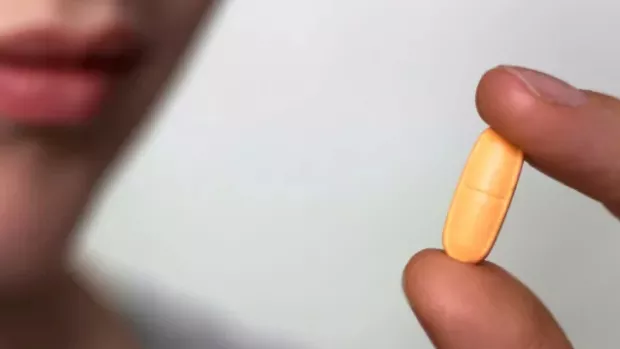
Managing relapses
Relapses can come out of the blue, and make life with MS unpredictable. There are steps you can take to manage them and plan for them, to minimise the effect MS has on your life as far as possible.
One important step could be to take a disease modifying therapy (DMT). Getting treatment can make you less likely to have relapses.
The options for managing an MS relapse are:
- treatment with high-dose steroids, either as an in-patient, a ‘day-case’ or at home
- rehabilitation – after steroids, or without steroids being given
- no treatment
Treating relapses
Steroids
You’ll be offered steroids if a relapse is serious and stops you doing the day-to-day things you need to do. Examples would be if your eyes are affected, or you can’t walk – or if a relapse is causing you a lot distress. You won’t get them for symptoms like fatigue or milder ones like tingling or numbness.
Steroids taken for longer periods can cause some serious side effects, such as diabetes or making your bones thinner and so more likely to break. Because of this your doctor might avoid giving you steroids more than three times in a year.
Steroids are powerful drugs. They often get a bad name in the media because of their association with athletes and body-builders who use ‘anabolic steroids’ to boost their performance and ability. These are not the same as steroids used to treat MS. Used correctly, steroids can be a very good treatment for different conditions, including relapses in MS.
The way that steroids work in MS is not fully understood, but we expect them to:
- reduce the inflammation
- shorten the duration of the relapse
- speed up recovery from the relapse
People who take steroids don’t make a better long-term recovery than people who don’t take them. Whether you have them or nor, the chances of a relapse leaving you with lasting effects are the same.
Side effects
There are a number of side effects of steroids – as there are with all drug treatments. The possible effects of the drug must be weighed against the possible side effects, ideally in discussion with your MS nurse, GP or neurologist. However, steroids are generally well tolerated when given to treat relapses, and side effects are normally short-lived:
- a ‘buzzy’ feeling with extra energy, making it hard to sleep
- upset stomach or gut – including feeling nauseous
- palpitations (faster than normal heart rate)
- metallic taste in the mouth
- increased appetite
- weight gain (usually short-term)
- flushing/ reddening of the face
- water retention. This can cause swollen ankles, the need to pee often, a general bloated feeling and short term weight gain
- acne (temporary)
- Headache
- Mood swings, including feeling ‘up’ or agitated
- Infections, including urinary tract infections
- High levels of sugar in your blood or pee (if you have diabetes, your doctor will talk to you about your insulin levels)
With regular or prolonged use of steroids, longer-term side effects can include:
- thinning of the skin thinning of bones (osteoporosis)
- increased blood pressure diabetes
Doctors don't recommended using steroids on a regular (‘pulsed’) basis or in progressive forms of MS, as studies haven't shown them to be effective.
How are steroids given?
NICE says that: "The course should be started as soon as possible after onset of the relapse and should be either: intravenous methylprednisolone, 1g daily, for between 3 and 5 days or high-dose oral methylprednisolone, 0.5g daily, for 5 days".
Oral steroids are usually in tablet form or sometimes liquid; intravenous steroids are through a drip. If you have difficulty swallowing, you may prefer a liquid steroid treatment. Treatment regimes vary between MS centres.
Usually when people choose to have intravenous methylprednisolone (given through a drip), the treatment is given in hospital, either as an in-patient (you stay in the hospital overnight) or as a day-patient (you come into hospital for the treatment then go home, returning each day). Occasionally, intravenous methylprednisolone is given in the GP surgery or at home. Your MS nurse or GP will know the procedure in your area. If you are prescribed oral methylprednisolone (taken as a tablet ), you will not usually have to attend hospital.
Rehabilitation
Rehabilitation can combine many different approaches to managing MS – physiotherapy, occupational therapy, dietary advice, employment services, support for care at home, and so on. Whatever services are involved, the aim is to lessen the impact of MS on someone’s life.
You might benefit from rehabilitation after a relapse, whether or not you had steroids. There is some evidence to show that recovery from a relapse is improved by having rehabilitation as well as steroids.
An MS nurse, district nurse or GP sometimes acts as a central point of contact for you. They can help ensure referrals are made to other professionals and answer your questions about rehabilitation services.
No treatment
You might decide not to have treatment for a relapse, though it's a good idea to discuss this with your healthcare team. For milder, sensory relapses (such as tingling or numbness), this is often the preferred option.
FAQs
What do I do if I think I am having a relapse?
If you think you are having a relapse, contact your MS nurse (by phone or email) or GP as soon as possible. Tell them about:
- your symptoms
- how you're feeling in general
- any difficulties your symptoms are causing you.
It's important that other possible causes of symptoms are not missed, so you will probably be asked lots of questions about your symptoms, your general health and your activity over the last few days.
If you are in regular contact with an MS nurse or neurologist, an appointment may be arranged for you at the neurology clinic. It is important for future treatment options that your neurologist is aware that you are having a relapse.
Some hospitals have relapse clinics, maybe one day a week. You can turn up without much notice. They might offer you steroids, either to take at home or have through an infusion (a ‘drip’).
If you are not in regular contact with a neurologist or MS nurse, you should still make an emergency appointment to see your GP. Your GP will then decide, in discussion with you, whether to refer you back to a neurologist.
It’s important that you let your MS nurse, GP or neurologist know if you have a relapse. That way you might get steroids to help you over it. Or it could mean you can start a disease modifying therapy (DMT) – or if you’re already are on one, it might mean you need to change your drug for a stronger one.
Should I rest or exercise when I am having a relapse?
There's no easy answer to this question - there's evidence that a certain level of exercise can help fatigue in MS in general, but there hasn't been any research into the effect exercise has on relapses.
Fatigue is often worse during a relapse, so you may need to rest. Also, it is important to prevent your core temperature from rising as this can make you feel worse. But everyone's MS is different, so trial and error - and getting advice from your doctor or physiotherapist - are the keys to managing relapses.
After a relapse - what do I do now?
Recovery from a relapse can take time – weeks or possibly months. Symptoms from early relapses can disappear completely, but sometimes you might be left with symptoms or some difficulty. This is more likely with relapses later on in your condition.
Make sure you speak to your MS nurse or GP about this, as there may be treatments, such as physiotherapy, rehabilitation or medication that can help.




